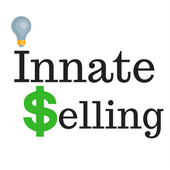
Should you be selling at a time like this?
Are you feeling uncomfortable trying to sell in the middle of the Covid-19 Pandemic?
I know that many people are.
And I also know that for some of you the opposite is true. Unprecedented opportunities making selling easier than it’s ever been.
Every situation that life throws at us brings challenges for some and opportunities for others.
And different industries have been hit in different ways.
I worked for many years within the Pharmaceutical Industry. I know most of my ex-colleagues have taken a step back from selling, currently focusing on planning and training instead. Allowing their health care customers to focus on the life saving work of helping those affected.
If you’re unsure of your best course of action during this time here’s some questions that may help you get clarity.
Please note I’m not advocating being out in person with your customers. Follow the guidance in your Country. And stay safe.
How Can I Sell Through Service?
Coming from a service mindset when selling is critical during sensitive situations.
But even if life was “normal” having this underlying mindset has a powerful impact on your customers and your sales results.
“Approach each customer with the idea of helping him solve a problem or achieve a goal, not of selling your product or service”.
~ Brian Tracy
Firstly put yourself in the shoes of your prospects.
What are their current challenges and opportunities?
Spend some time both brainstorming what these are for your customers.
Where possible ask them directly.
Be genuinely curious about what’s going on for them. How are they dealing with life both? – professionally and personally.
Don’t assume someone won’t have the time or inclination to speak with you at the moment. As at any time, some people will, some won’t.
Do be mindful of their feelings and time constraints.
Let them know why you are calling, be empathetic to their situation, listen deeply and focus on understanding their needs.
How you approach these calls will vary depending on whether they’re a current customer or a prospect. In either case ensure you are clear on the value you are bringing to them before you reach out to them.
Remember WIIFM (what’s in it for me ie the customer) still applies.
How can you support them at this time?
Be sincere and act with integrity. This isn’t about finding a way to shoe horn in the product or service you sell.
On the other hand, if what you’re selling is genuinely in their best interest to invest in at this time, you are doing a disservice if you hold back.
When you reach out to your prospects and current customers in a way that truly supports them, you will build relationships that work over the longer term.
Sales may be down at present. Think about the longer term view. Nurture existing and new relationships so that you have a strong pipeline in place.
As a bonus you may find opportunities that serve everyone now.
“Good service leads to multiple sales. If you take good care of your customers they will open doors you could never open alone.”
~ Jim Rohn
How can you future proof yourself?
You may be in a situation where your customer base has been severely hit. And you find yourself laid off, furloughed or genuinely unable to contact customers.
If this is the case, now’s the time to take stock and invest time in yourself.
This may be in terms of developing your skills, knowledge, mindset and/or wellbeing.
Here’s some questions to help you focus where to invest your time?
“If I chose 1 thing to focus on over the next 4 weeks what would have the biggest impact?”
“It’s 1 year from now and I’m the top sales person in my organization – what actions did I take to get here? And who did I become to achieve this?”
And for a more holistic approach:
“If I could wave a magic wand and have my life exactly how I wanted it, a year from now, what would that look like?”
By reflecting on where you are now, and where you want to be, allows you to start building strong foundations for the future.
During April I’m offering FREE sessions every Thursday to support you. These can be focused on sales or any other area of your life where you want more clarity and well being.





Recent Comments